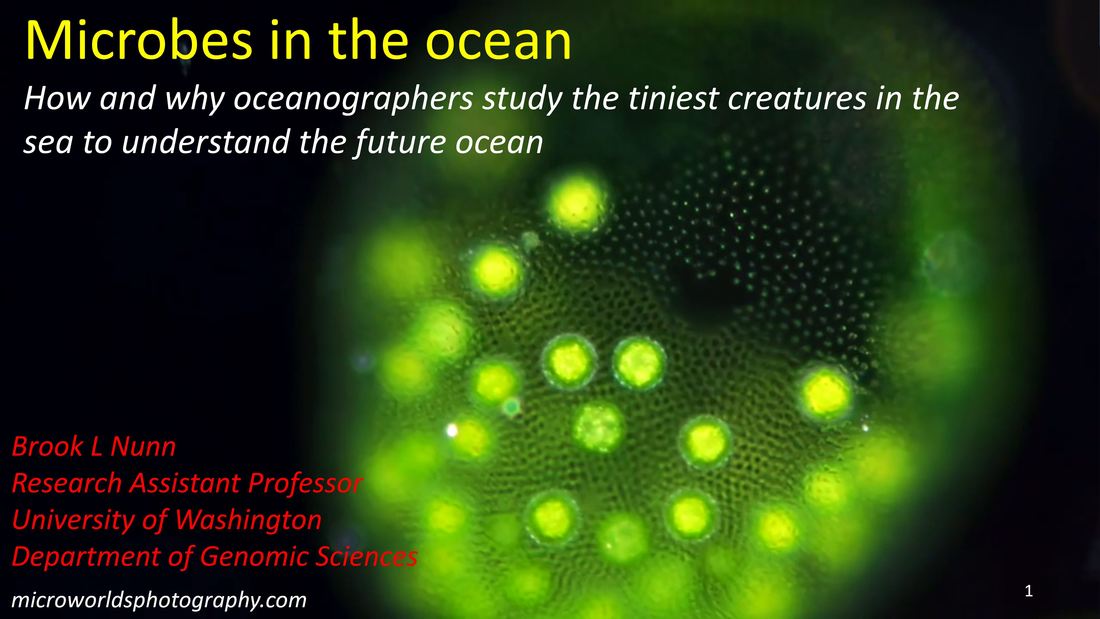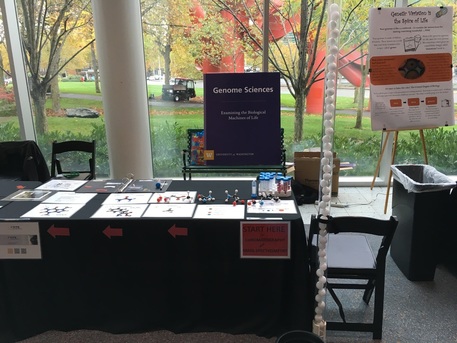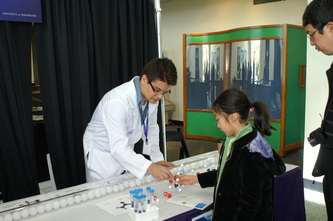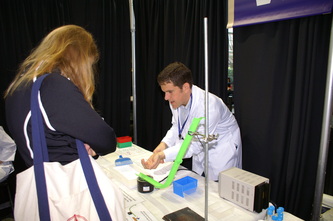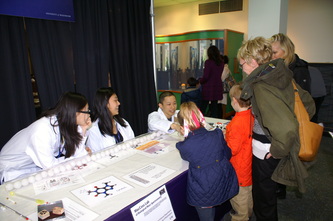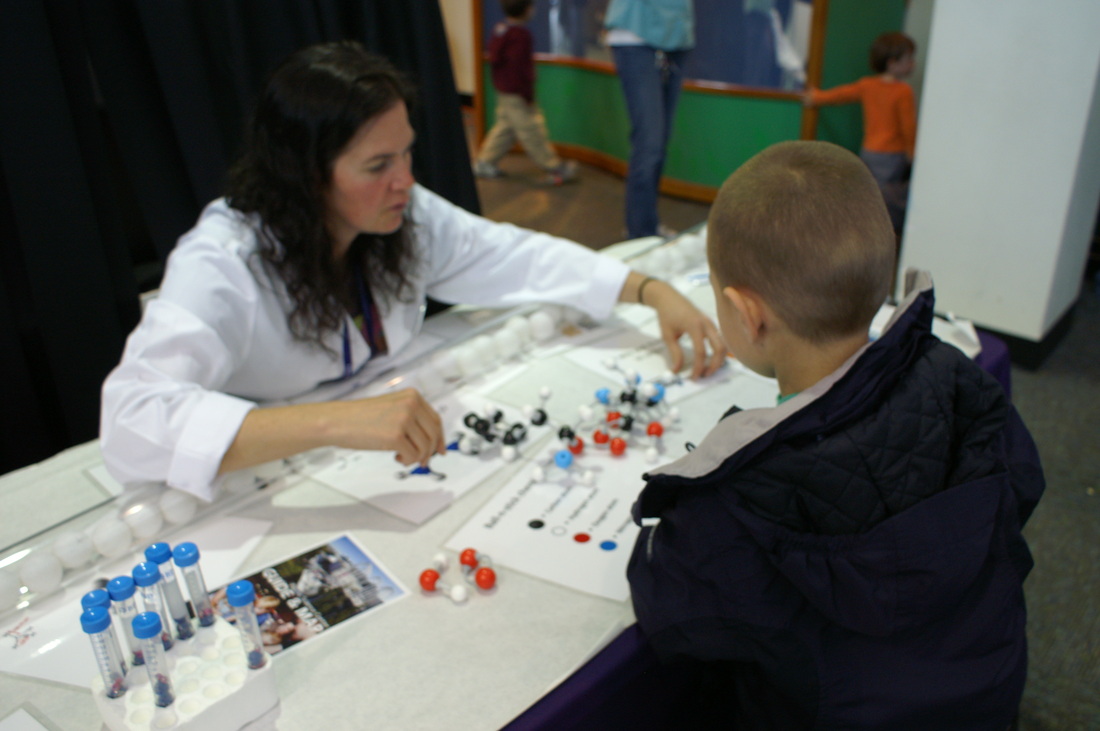Inspiring kids - High School Summer Interships
HIGH SCHOOL SUMMER INTERNSHIPS
Every year we host one motivated high school student to work in the lab with us (1-on-1). If you are interested in a similar summer internship, please contact us, we would love to have you!
2017-2018, we are mentoring 2 local high school girls- Hana and Christina (Mountlake Terrace High School). They are looking at the protein expression in the center part of coral skeletons. More to come!!
2016, we took a year off and taught a 1st year Crime Scene Investigation Course (CSI: Seattle).
2015 we hosted Skyler Nunn, another high school student from Colorado. Skyler worked with the data we generated from Anastasia's internship. Through her 1 month internship working full time, Skyler learned R statistical software for graphics and coding and wrote a draft of her first scientific paper.
HIGH SCHOOL CLASS TOURS
Every year we host 5-10 high school class tours. Students arrive and get oriented to the inner workings of the Department of Genome Sciences. After a brief general presentation, the class is broken into groups of 8-9 students tour groups. These tour groups then break off with a representative graduate student, post-doctoral fellow, or a professor to the various labs to learn about their area of interest. Students then meet back together and discuss what they learned. We teach the general techniques of mass spectrometry and proteomics and finish the tour with our mass spectrometry facility.
PUBLIC OUTREACH OPPORTUNITIES
Whenever we have the opportunity, we should teach the children how exciting our research is! We make a huge effort to hold a booth at the Pacific Science Center in downtown Seattle two times a year. The Science Center hold two hands- on- events for local research groups to demonstrate their research and inspire kids. Annually, we attend the PAWS on SCIENCE event in the spring and the LIFE SCIENCES RESEARCH outreach in the fall.
We also have been involved in a workshop for middle and high school students in Yakima Valley, WA. This area is typically underserved in terms of science outreach and we had a great time interacting with hundreds of students, their teachers and parents.
Every year we host one motivated high school student to work in the lab with us (1-on-1). If you are interested in a similar summer internship, please contact us, we would love to have you!
2017-2018, we are mentoring 2 local high school girls- Hana and Christina (Mountlake Terrace High School). They are looking at the protein expression in the center part of coral skeletons. More to come!!
2016, we took a year off and taught a 1st year Crime Scene Investigation Course (CSI: Seattle).
2015 we hosted Skyler Nunn, another high school student from Colorado. Skyler worked with the data we generated from Anastasia's internship. Through her 1 month internship working full time, Skyler learned R statistical software for graphics and coding and wrote a draft of her first scientific paper.
- Nunn, Skyler, Chappell, P.D., Bonderenko, A., Jenkins, B., Nunn, B.L., (2017). Phytoplankton plastid proteomics: Cracking open diatoms to understand plastid biochemistry under iron limitation. Journal of Emerging Investigators 2, pp 1-8.
HIGH SCHOOL CLASS TOURS
Every year we host 5-10 high school class tours. Students arrive and get oriented to the inner workings of the Department of Genome Sciences. After a brief general presentation, the class is broken into groups of 8-9 students tour groups. These tour groups then break off with a representative graduate student, post-doctoral fellow, or a professor to the various labs to learn about their area of interest. Students then meet back together and discuss what they learned. We teach the general techniques of mass spectrometry and proteomics and finish the tour with our mass spectrometry facility.
PUBLIC OUTREACH OPPORTUNITIES
Whenever we have the opportunity, we should teach the children how exciting our research is! We make a huge effort to hold a booth at the Pacific Science Center in downtown Seattle two times a year. The Science Center hold two hands- on- events for local research groups to demonstrate their research and inspire kids. Annually, we attend the PAWS on SCIENCE event in the spring and the LIFE SCIENCES RESEARCH outreach in the fall.
We also have been involved in a workshop for middle and high school students in Yakima Valley, WA. This area is typically underserved in terms of science outreach and we had a great time interacting with hundreds of students, their teachers and parents.
We were at the Seattle Pacific Science Center Life Sciences Research Weekend
|
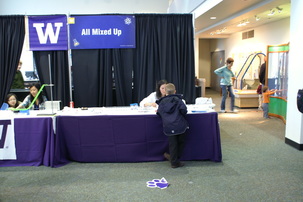
You can find us at each PAWS on SCIENCE
At Pacific Science Center in April
All Mixed Up and Race the Mass Spectrometer!
Friday, Saturday & Sunday
Learn about the tools chemists use to separate chemicals from mixtures. Then see if you can separate chemicals on our mass spec racetrack
At Pacific Science Center in April
All Mixed Up and Race the Mass Spectrometer!
Friday, Saturday & Sunday
Learn about the tools chemists use to separate chemicals from mixtures. Then see if you can separate chemicals on our mass spec racetrack
|
“The mediocre teacher tells. The good teacher explains. The superior teacher demonstrates. The great teacher inspires.”
- William Arthur Ward |
